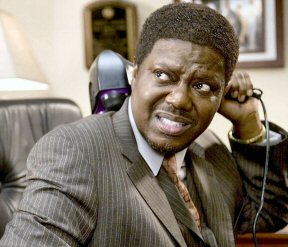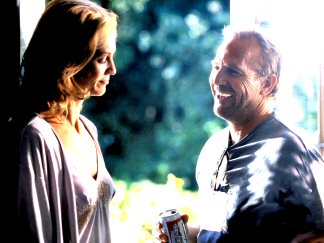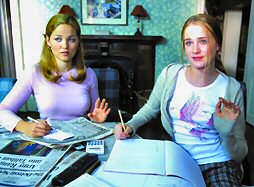March 29, 2005
To Die or Not To Die – That Is The Question
Too Much Politics In Schiavo Situation
By Fred H. Arm
Wow, what a political football this controversy presents. In any event, I thought I would add my two cents on this national obsession with saving or killing Terry Schiavo. I have never seen the nation or the communities more polarized along political and religious grounds as with this case. Shame on us!
On the one hand, I would say that the right to end one's life or the life of a family member is not the business of the public or the state. On the other hand, I do not want private people discarding bodies like so much rubbish if they get in their way. There are times when such a difficult decision may be best left up to nature and there are other times it requires human intervention.
If a person is in a coma and all the doctors agree that there is no hope, then perhaps the person should be allowed to die. However, in light of the remarkable march of medical science, what may appear one day hopeless, may be curable in the immediate future. This is a delicate line to walk. At one time, if a person had a serious infection they would likely die. In difficult childbirth, the father was always queried whether to spare the life of the baby or the mother. Measles would often be a death sentence. Not so today with antibiotics and other medical advances. The same sort of miracle medical possibilities may exist for people like Terry, although highly unlikely. Again it would have to be a carefully and thoroughly thought out balancing process, taking into consideration medical advances presently being experimented with and possibly already in the FDA pipeline.
As for Terry specifically, I do not have enough data or wisdom to make such a decision. If it were my wife, I would carefully research the available science and then make an educated decision. I do not trust the medical profession alone in such cases nor in most other cases as well. Every person has to live with himself or herself after such a major decision and accordingly, it should not be taken lightly. 
Polarized special interest camps, politically and religiously, have made a mockery of the entire process. We have a judicial system in this country that supposedly considers all evidence and then makes a decision. If it operates within its strictures, the outcome should be acceptable and just. There comes a time when you have to accept the decision of the civilized system who ostensibly has all the facts. Does anyone know of a better way? Not yet anyway.
March 27, 2005
“Guess Who” – A Movie Review
A Comedic Remake of A Tired Cliché
By Fred H. Arm
 In a reversal of the premise of the classic film masterpiece, "Guess Who's Coming to Dinner," the movie that shocked the racially insensitive public back in 1967, has been remade as a domestic farce, yet not nearly so scandalous or shocking as its celebrated predecessor. This time around, the dinner has been replaced by an entire weekend, and the crusty, over-protective and suspicious father who must overcome his prejudices is played by a black man (Bernie Mac), originally performed by Spencer Tracy. His daughter's fiancé, performed originally by Sidney Poitier, who was a Yale educated doctor, is now a stockbroker played by Ashton Kutcher and is white. The mother is played by Judith Scott of the old “Bill Cosby Show” fame and was featured in the original film by Katherine Hepburn. Incidentally, "Guess Who's Coming to Dinner" was the last Hepburn/Tracy film for that famous duo venerated by audiences around the world. Therein lies the question of whether the new version is evidence of social progress or simply of cultural decline.
In a reversal of the premise of the classic film masterpiece, "Guess Who's Coming to Dinner," the movie that shocked the racially insensitive public back in 1967, has been remade as a domestic farce, yet not nearly so scandalous or shocking as its celebrated predecessor. This time around, the dinner has been replaced by an entire weekend, and the crusty, over-protective and suspicious father who must overcome his prejudices is played by a black man (Bernie Mac), originally performed by Spencer Tracy. His daughter's fiancé, performed originally by Sidney Poitier, who was a Yale educated doctor, is now a stockbroker played by Ashton Kutcher and is white. The mother is played by Judith Scott of the old “Bill Cosby Show” fame and was featured in the original film by Katherine Hepburn. Incidentally, "Guess Who's Coming to Dinner" was the last Hepburn/Tracy film for that famous duo venerated by audiences around the world. Therein lies the question of whether the new version is evidence of social progress or simply of cultural decline.
One would conceivably have to admit to a bit of both. On the side of progress, it seems that the racial hang-ups and pieties that made the earlier "Guess Who's Coming to Dinner" both necessary and dreadfully stiff have become more relaxed, since interracial love is not the shock or the big deal it once was. As for cultural decline, well, the fiancé played by Ashton Kutcher is pretty much representative of how far we have sunken in that regard. 
Yet, one cannot fault the essence of this cinematic farce without biting the tongue. For one thing, the first “Guess” movie, important and popular as it was, is really not that great a movie by today’s standards. On the other hand, "Guess Who," directed by Kevin Rodney Sullivan ("Barbershop 2") from a screenplay written by David Ronn, Jay Scherick and Peter Tolan, is so mild and thin that it hardly inspires much excitement at all. Although I would give the dinner table scene a notable exception as well as another really funny shtick is when Percy’s other daughter comes home, sees the white fiancé there with the family, and exclaims, “Oh my God, are we being audited?” The comedic attempts, such as the differences between men and women, the sexual orientation of the party planners, and the comical effects of alcohol are clichéd treks rather than creative adventures.
So what remains is a potentially interesting premise as a cross-racial, possible buddy comedy alienated by the continuous confrontation between Mac's bigoted overbearing persona and Kutcher's wimpy and spacey affability. The two performers do their best, however the writing is so tired and the direction so draggy that their collisions never acquire that much momentum.
 Mac's character, Percy Jones, is a New Jersey loan officer about to renew his marriage vows with Marilyn, his wife of 25 years (Judith Scott). Percy's older daughter, Theresa (Zoë Saldaña), is arriving from New York with her boyfriend, Simon (Ashton Kutcher) for the repeat of the vows event. Theresa has failed to inform her family that Simon is white, and Simon has not told her that he just quit his job at a blue chip investment bank. These two oversights provide fuel for the skirmishes to follow, which conclude in the usual relationship-threatening rebukes and are followed by, just in the nick of time, clichéd reconciliation.
Mac's character, Percy Jones, is a New Jersey loan officer about to renew his marriage vows with Marilyn, his wife of 25 years (Judith Scott). Percy's older daughter, Theresa (Zoë Saldaña), is arriving from New York with her boyfriend, Simon (Ashton Kutcher) for the repeat of the vows event. Theresa has failed to inform her family that Simon is white, and Simon has not told her that he just quit his job at a blue chip investment bank. These two oversights provide fuel for the skirmishes to follow, which conclude in the usual relationship-threatening rebukes and are followed by, just in the nick of time, clichéd reconciliation.
Kutcher plays a affable, yet ineffective young man engaged to a striking black woman and is absurdly prevented from sleeping with her by Percy Jones's sharing a sofa bed in the basement with this would-be son-in-law in order to protect his daughter's honor.
Simon, who proclaims he grew up without a father in another subtle reversal of stereotype, is quite frustrated by Percy's bullying, nevertheless he honors Percy’s demanding values. The constant bullying, by Percy, although not as brutal as Robert De Niro's treatment of Ben Stiller in "Meet the Parents," is nevertheless continuous and aggressive. The harassment ultimately crests at the dinner table when Percy and his father goad Simon into telling racist jokes thus provoking him to cross the line and finally taking offense after a few zingers tweak their ire.
The rest of the film is not nearly so rash, yet its insipidness has less to do with caution than with uninspired encouragement. In the simple, prosperous setting in the New Jersey suburb, what intolerance remains may easily be laughed off. "Guess Who" credibly insinuates that racial relations have improved considerably since “Guess Who’s Coming To Dinner” came out in 1967, which may be one of the reasons this movie doesn’t quite reach the inspired level of its predecessor. And again, the Spencer Tracy, Katherine Hepburn, and Sidney Poitier combo is quite a hard act to follow.
March 17, 2005
The Upside of Anger – A Movie Review
Fabulously Written and Gloriously Executed
By Fred H. Arm
 When you take time out to see a movie, it is always a great blessing when the film is cleverly written, seamlessly executed, and wonderfully acted. Such is the experience you take home when viewing “The Upside of Anger”.
When you take time out to see a movie, it is always a great blessing when the film is cleverly written, seamlessly executed, and wonderfully acted. Such is the experience you take home when viewing “The Upside of Anger”.
One might have described the genre as a classic melodrama years ago when the term was used to characterize family dramas where women struggled with their situation or gave voice to once repressed desires. However, I would describe it as a comedy-drama with a wonderful mix of characters, plot, and extraordinary flow.
Galvanized by a wonderful and clever script, and stimulated by truly incredible performances by Joan Allen and Kevin Costner, “Upside of Anger” is a welcome and inspired account of a family struggling with the unexpected abandonment by the father of four girls. Writer/director Mike Binder deserves all the tribute the fans and critics will likely bestow upon him for this superbly rendered comedic drama, which is at once traditional and iconoclastic as well as absorbing and entertaining, as it is essentially human. It is a perfect blend of humor and sadness, consistent with real people that anyone can identify with. Each character is uniquely and expertly developed into several complex layers, each of which is interesting in its own right.
 The tale commences when the alcoholic matriarch of a well to do Detroit family discerns that her husband has abandoned her thus leaving her to raise four determined daughters, all of who are in various stages of young adulthood. She feels lost being on her own, without any obvious means of support. Her angry, drunken rants fuel her already combative parenting style, and the story kicks off its comical meandering through a complex familial matrix when Costner, as a middle-aged, quirky yet real and perfectly lovable neighbor, makes a play for her attention. Mike Binder, who also is the director of this film, skillfully plays a character that at first you have to laugh at, later despise, and finally sympathize with as well as laugh at once more. The supporting cast, which includes Erika Christensen, Evan Rachel Wood, Keri Russell, and Alicia Witt, skillfully facilitate this exquisite interpretation of a family's emotional transformation to become one of the most pleasurable and surprisingly unpredictable romantic dramas I have seen in a very long time.
The tale commences when the alcoholic matriarch of a well to do Detroit family discerns that her husband has abandoned her thus leaving her to raise four determined daughters, all of who are in various stages of young adulthood. She feels lost being on her own, without any obvious means of support. Her angry, drunken rants fuel her already combative parenting style, and the story kicks off its comical meandering through a complex familial matrix when Costner, as a middle-aged, quirky yet real and perfectly lovable neighbor, makes a play for her attention. Mike Binder, who also is the director of this film, skillfully plays a character that at first you have to laugh at, later despise, and finally sympathize with as well as laugh at once more. The supporting cast, which includes Erika Christensen, Evan Rachel Wood, Keri Russell, and Alicia Witt, skillfully facilitate this exquisite interpretation of a family's emotional transformation to become one of the most pleasurable and surprisingly unpredictable romantic dramas I have seen in a very long time.

This clever and rare comedy should not be missed. Although the average American filmgoer may be disappointed with it's absence of car chases and gratuitous violence, the fine quality of the acting and the superb story may ultimately speak to the culturally deprived and vacuous mentalities that may hopefully mature and broaden their fertile minds.
Opens in the San Francisco Bay Area March 18th
March 15, 2005
Point Residents Feel The Frustration of Blaring Horns
Continual Horn Blowing and Blocked Streets Plague Residents
by Fred H. Arm

Every day and every night, the piercing horns of lumbering freight trains offend our senses and impair our health and sense of well-being. It seems that the frequency of trains has significantly increased over the past few years with no sign of any impending reduction; in fact, the railroads have predicted continuing increases in the frequency of train traffic.
Medical scientists and others the world over have proven that high decibel noise of the type produced by train horns is not only offensive to hear, but insidiously damages our health and well-being. These health effects are especially deleterious when they interfere with sleep, since this produces long-lasting effects. Regrettably, most residents feel there is little or nothing they can do to halt the raucous onslaught, which simply amounts to an assault upon our ears. Frustration levels are at an all-time high in our once peaceful community.
Some hope seems to be in sight with the new Federal regulations that will allow the creation of Quiet Zones. Quiet Zones can be established provided that the crossings in question meet rather strict requirements for safety. Considering the City of Richmond’s financial condition, despite their willingness to bring a number of crossings up to the standards required in the new Federal guidelines, will no doubt be hampered by a lack of city funds. Even if such funds are allocated, it may take months if not years until the construction actually would begin. We remain optimistic about the eventual creation of Quiet Zones around the city; yet, the remaining question lingers, “How much longer will we be forced to endure the continuing noise pollution?”
So, what, if anything, can we do to expedite the process? Clearly, the law provides extensive legal protection and power under both state and federal statutes. Unfortunately, it would appear that only a concerned and active citizenry, with the courage of their convictions could bring to bear the laws created for our welfare. Only by action can we force the Railroads to discontinue their use of unnecessary and noise-polluting horns.
A local group called HORN (Households Opposed To Railroad Noise) has sent letters to BNSF and Richmond Pacific Railroads in an attempt to get the railroads to voluntarily mitigate the obnoxious horn blowing. Sadly, the Railroads have once again chosen to ignore the will of the people and continue to blow their horns twenty-four hours a day, seven days a week, even in the early morning hours when the streets are essentially deserted.
I can understand the need for horn blowing at a crossing where trains travel at 70-80 miles per hour. Around here, the fastest that the trains travel is somewhat less than 10 miles per hour. Safety at many of the crossings is ensured by automatic crossing gates, flashing lights, and bells. To justify the blowing of the horns at these well-guarded crossings is necessary would appear to be an oxymoron.

Now seems to be time for action. The demands of a patient and understanding public can no longer be ignored. The weapons to fight this battle are quite compelling. HORN asks you to lend your support to help launch what will no doubt be a heated and challenging David and Goliath encounter. Please let us know if you are willing to pursue this matter (with a like-minded small group of people) perhaps beginning in small claims court. The amount of time it would take would be minimal and the cost of filing a claim would be less than $50.00. If you are interested, please email either Louis Hagler at Louishagler@aol.com or me at my email address, which is fha@bigfoot.com
Collectively, we can make a difference. We need the courage and perseverance to put and end to the unnecessary noise pollution from the train horns. In so doing, we can regain the quality of life and health that we are entitled to.
March 14, 2005
Millions – A Movie Review
Garbled Tongues Contaminate Film
By Fred H. Arm

There is little to say about the recent Danny Boyle film, Millions. It attempts to present a heartwarming fable about two little boys who are brothers and recently lost their mother. When a suitcase full of money falls from the sky, a morality tale evolves full of fantasy and clichés that leave one wondering why 97 minutes and the price of admission were wasted on this droll English whimsy.
Perhaps it is just me, but English language films from England are hard enough to understand when spoken by adults, it is nearly impossible to decipher when children are speaking. And these children speak continuously throughout the film leaving one wishing there were sub-titles to read. English humor is different from ours and can often be funny; however, this strange tale is embellished with fantasies of visitations by Catholic Saints of antiquity, left me rather bored and yearning for Hollywood. It may just be the annoyance at not understanding the gibberish prattled throughout, but I think the plot is a tired retread of many older films and television sitcoms.

Nevertheless, the acting by the two boys Alex Etel and Lewis McGibbon, was superb. Perhaps they are the only redeeming aspect of this improbable farce. If you have to see it, wait until it comes out on DVD and then you can turn on the sub-titles if need be. I would not recommend this film unless you were a British film enthusiast, and even if you were, I would still pass.
Opens March 18th in San Francisco.